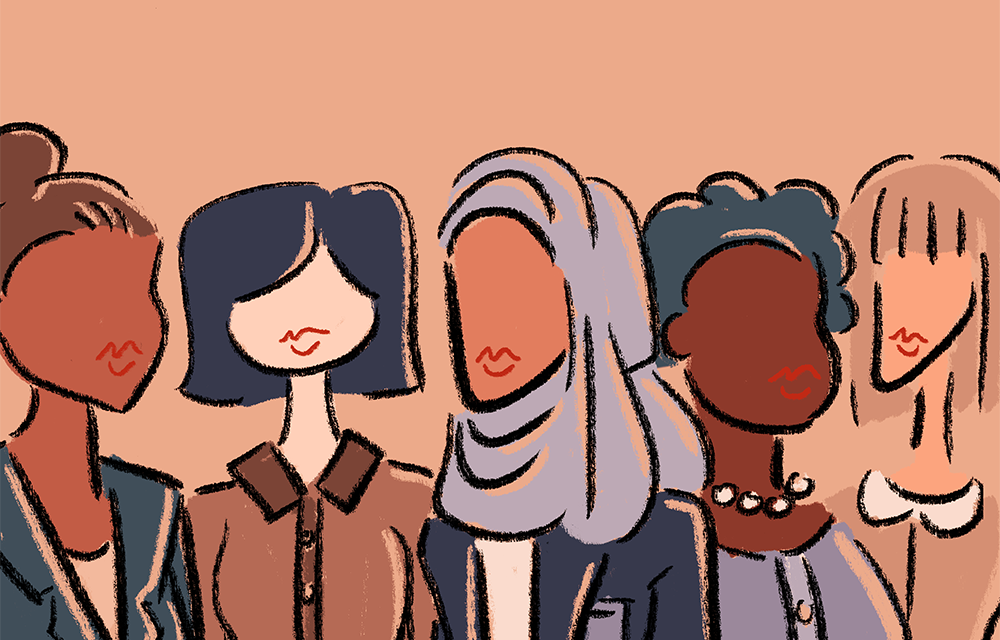Anna Lee/Nubian Message
Kennysha Woods | Managing Editor
For some people, the idea of entrepreneurship is liberating. You get to choose your own hours, you don’t have a dress code and you can work from anywhere you want in the world without having to answer to anyone but yourself. You are your own boss.
But then there’s everything else, like the constant attention you must pay to the fluctuating stock market, the stress that comes with trying to balance your personal life while running the business and the never-ending process of developing products and services that cater to the demands of your market.
So while being an entrepreneur can be fun, the role still comes with responsibilities that may be daunting to people looking to start their own business—especially to women, who face institutional barriers such as lack of mentors, the gender pay gap and unequal access to funding when trying to start their own businesses.
Luckily for the Wolfpack, however, we have organizations like Advancement of Women Entrepreneurs (AWE), which provides networking and engagement opportunities to aspiring entrepreneurs in a woman-focused space. It consists of a board of NC State students who are referred to as “AWEbassadors.”
“The idea of AWE,” said Dakota Batch, a second-year master’s student in the Wilson College of Textiles, “is just a space for women—not only women, but focused on women—to come share ideas and experiences in entrepreneurship. A place not to feel judged or competitive or anything like that.”
The group first emerged in 2015 as a result of a grant proposal written by Dr. Rosanna Garcia, a former associate professor of marketing and innovation.
“You don’t know everything about entrepreneurship and you probably won’t when you first start,” said Kristen Adejuwon, an AWEbassador and second-year doctoral candidate in textile technology management. “So when you can sit down with people who already have experience in entrepreneurship and what it takes, it gives you that support system you need to be successful.”
Katherine Annett-Hitchcock is AWE’s current program director and an associate professor in the department of textile and apparel, technology and management.
“The grant was successfully funded by the Extension, Engagement and Economic Development fund,” Annett-Hitchcock said in an email interview with Nubian Message. “It ran for a year funded, then another year non-funded with limited events and then dormant until the vice chancellor for finance and administration [Scott Douglas] asked me to resurrect it.”
In the beginning, AWE was operated primarily by faculty members, but in its newly-revived formation, AWE is more student-led. In addition to Annett-Hitchcock, Adejuwon and Batch, there is Behnoosh Farashahi, AWE’s project manager and a PhD candidate in textile technology management, as well as 10 AWEbassadors belonging to different grade levels, majors and colleges.
“Every college needs something different and has a different set up,” Batch said, “It’s good to make sure that not only are events getting published in every college… but to get an idea of what every college needs.”
AWE also facilitates connections between other entrepreneur groups scattered throughout campus.
“Every college has something different, and no one is really connected and trying to build up that resource,” Batch said. “We provide the contacts and resources for all of the entrepreneurship stuff around campus. We provide speaker series, so local women who own their own businesses come and speak about the challenges and advantages and what they went through—to hear all of that from their perspective.”
Although AWE is woman-focused, the group an open to any NC State or local community member who wants to join. By participating in the group, people can be involved in the discussion about women in entrepreneurship.
“The topic of women and their experiences is very different from the male perspective,” Adejuwon said. “Also, that way they can understand the disparities that we go through, help us when we need help and be an additional support system. Women are very powerful on their own, but at the same time, it’s even more wonderful in everyone is a part of that empowerment.”



